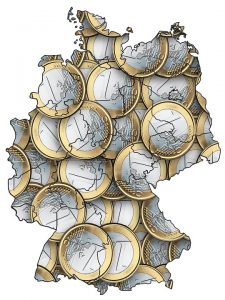 Over the past few years, Germany has been praised for its efforts in leading on transparency and anti-corruption in the global agenda and for supporting countries in transition to recover stolen assets. But at the same time, the German finance ministry estimates that €100 billon is laundered through Germany each year. What’s the truth?
Over the past few years, Germany has been praised for its efforts in leading on transparency and anti-corruption in the global agenda and for supporting countries in transition to recover stolen assets. But at the same time, the German finance ministry estimates that €100 billon is laundered through Germany each year. What’s the truth?
In this paper prepared for the U4 Anti-Corruption Resource Center in collaboration with Transparency International, CiFAR looked at recent trends and efforts of German authorities in facilitating asset return cooperation and in preventing stolen assets from other countries from being hidden in its banks and territory. We found that Germany is far from the ideal.
The main problem in the German financial system seems to be the lack of transparency in beneficial ownership. Bank secrecy is not practiced openly, but tools such as trusts, foundations and Treuhand (a German speciality allowing a lot of secrecy) can be used to hide identity. Obtaining information on professional identity and customer due diligence are tasks far from easy.
Germany scored 89 out of 144 countries in 2015 Basel Anti-Money Laundering Index measuring the risk level in anti-money laundering/terrorist financing and other related factors, such as corruption and political risk.
Germany has reacted to criticism of this with the ratification of the UN Convention Against Corruption, followed by new laws on money laundering, another one on exchange of financial information and the creation of a transparency registry. Organisations such as the Tax justice Network have however criticised these efforts and stated they are superficial and insufficient. Much more needs to be done to end the secrecy of Germany’s financial system if the country is to be serious about its transparency commitments.
